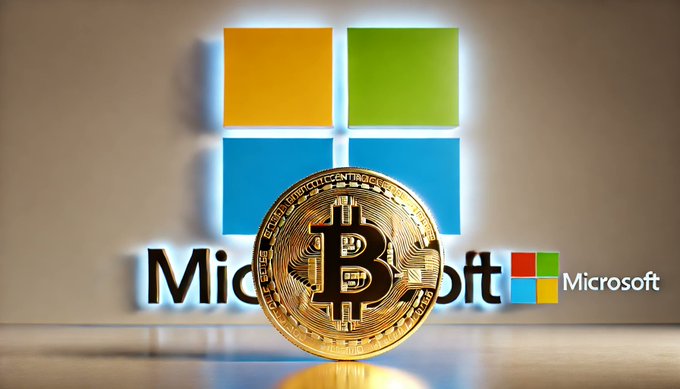Proposal to Adopt Bitcoin
Amazon and Microsoft have been urged to include Bitcoin in their corporate coffers by the Washington, DC-based think organization, the National Center for Public Policy Research. The group thinks Bitcoin might increase shareholder value and protect cash reserves from inflation. The NCPPR asserts that measures of inflation, such the Consumer Price Index, are underestimating the actual devaluation of fiat money, which might be as much as twofold – the official rate of 4.95%.
At Microsoft, this proposal faced significant resistance. Shareholders rejected it, citing concerns over Bitcoin’s volatility. Amazon is set to vote on a similar proposal at its 2025 annual meeting. The question remains whether the e-commerce giant will make a different decision.
Amazon’s Innovative Approach vs. Microsoft’s Conservatism
Amazon’s approach to business differs from Microsoft’s. While Microsoft is known for its conservative financial strategies, Amazon has a history of embracing emerging technologies. This openness could make Amazon more likely to consider Bitcoin as part of its treasury. However, Bitcoin’s extreme price swings and the lack of tangible yields present challenges.
Analysts like Nick Cowan, the CEO of Valereum, say that in case Amazon does adopt Bitcoin, it would invest a meager portion of its cash reserves, similar to Tesla. In 2021, Tesla bought $1.5 billion worth of Bitcoin, and despite selling 70% of its stash later in the year, it turned out to be very lucrative. Today, Tesla owns 9,720 BTC valued at more than $1.3 billion.
Risks of Bitcoin Adoption for Amazon
Allocating cash reserves to Bitcoin would be a bold move for Amazon. However, it could divert funds from critical areas like AWS, AI advancements, and logistics infrastructure. These investments are key to maintaining Amazon’s competitive edge. Additionally, Bitcoin’s volatility might make shareholders wary of such a shift.
Cowan believes that Amazon, with a market cap of $2.4 trillion, has no urgent need to adopt Bitcoin. Unlike MicroStrategy, which used Bitcoin to bolster its smaller market cap, Amazon’s core business remains robust. MicroStrategy’s Bitcoin strategy involved significant leverage, transforming its stock into a Bitcoin proxy. For Amazon, replicating such results would be unlikely given its scale.
Environmental Concerns
Another reason Amazon could possibly avoid Bitcoin is the ecological footprint it leaves. Bitcoin mining, as it’s called, uses a lot of energy and has received significant criticism on environmental grounds. Given that Amazon hopes to reach net-zero carbon emission by 2040, Bitcoin adoption could lead to negative publicity. Sustainability has been one of the big pieces of its public persona, and adopting Bitcoin might clash with these ideals.
The Shareholder Dilemma
Amazon shareholders face a complex decision. While Bitcoin could hedge against inflation, it also introduces risks and potential public backlash. Tesla and MicroStrategy have demonstrated the potential rewards of adopting Bitcoin. However, Amazon’s scale and priorities make such a move far more complicated.
Key Points at a Glance
|
Factor |
Impact on Amazon |
|
Cash Reserves |
$87 billion vulnerable to inflation |
|
Inflation Hedge |
Bitcoin offers potential protection but introduces volatility risks |
|
Innovation |
Amazon’s willingness to innovate may favor Bitcoin adoption |
|
Environmental Concerns |
Bitcoin mining could conflict with Amazon’s sustainability goals |
|
Shareholder Concerns |
Risk of backlash from speculative investment vs. focus on core growth |
Amazon must carefully weigh these factors before making its decision. Whether it chooses to embrace Bitcoin or focus on its established strategies, the outcome will reflect its long-term vision and priorities.






